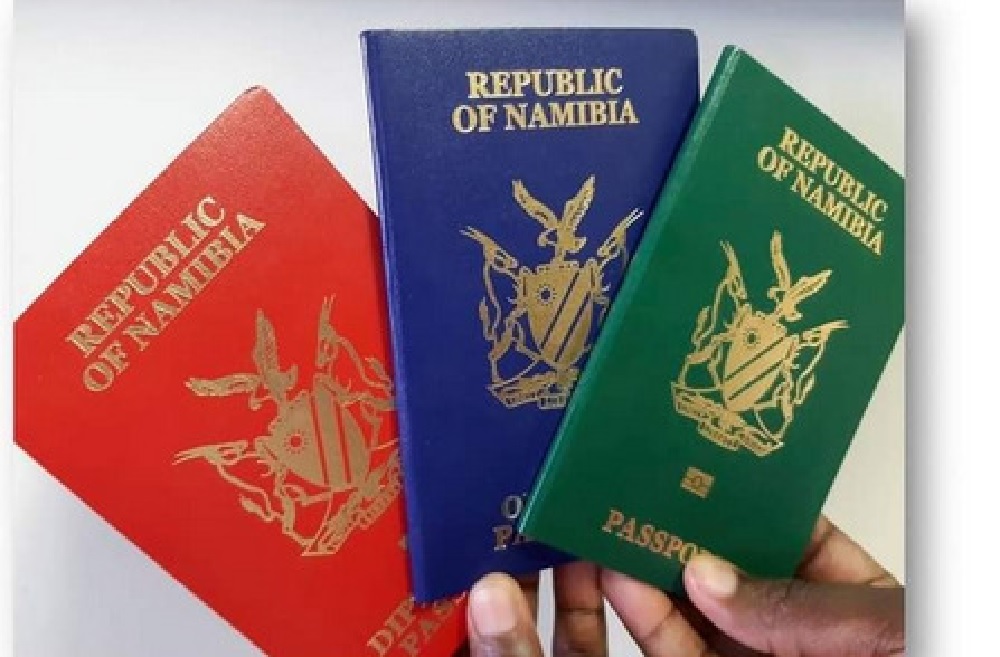Foreign
US President Biden declares Easter Sunday Transgender Day of Visibility

United States President Joe Biden has declared Easter Sunday “Transgender Day of Visibility.”
The International Transgender Day of Visibility was created on March 31, 2009, and has continued to be celebrated every March 31.
The day was created to honour transgender people and raise awareness of the discrimination they continue to face.
However, the White House disclosed that Biden’s declaration was backed by the US Constitution.
According to Biden: “Now, therefore, I, Joseph R. Biden Jr., President of the United States of America, by virtue of the authority vested in me by the Constitution and the laws of the United States, do hereby proclaim March 31, 2024, as Transgender Day of Visibility.
“I call upon all Americans to join us in lifting up the lives and voices of transgender people throughout our nation and to work towards eliminating violence and discrimination based on gender identity.”
Since its inception, the Biden administration has made LGBT activism a cornerstone of its policy priorities. He boasted in his statement that he appointed transgender leaders to his administration and ended the ban on transgender Americans serving openly in the military.
In the past, some of Biden’s transgender inclusivity events at the White House have backfired.
Meanwhile, LGBTQ – Lesbian, Gay, Bisexual, Transgender, and Queer – people have been warned to stay out of Nigeria.
This warning was issued by the spokesperson of the Nigerian Police Force, Muyiwa Adejobi.
Adejobi warned that the police would be going after such people in Nigeria.
He said LBGTQ members seen in the trending “Of Course” challenge would not find Nigeria a comfort zone, describing them as “criminals.”
There has been a trending video showing alleged members of the LBGTQ community describing who they are and what people think of them.
Foreign
Ghana: Govt cancels sale of diplomatic properties in Nigeria, Zambia

The Ghanaian government has canceled two transactions initiated by the previous administration under the leadership of former president Nana Akufo-Addo to sell Ghanaian diplomatic properties in Nigeria and Zambia.
“Yesterday I informed Parliament that with the full backing of President Mahama, we have cancelled two transactions initiated by the previous Akufo-Addo/Bawumia government to sell Ghanaian diplomatic properties in Nigeria and Zambia.” Minister of Foreign Affairs, Hon. Samuel Okudzeto Ablakwa announced on his X.
According to the Member of Parliament for North Tongu, the current administration is determined to retrieve an illegal part payment in one of the transactions.
Adding that those who are involved in these illegal transactions will be sanctioned.
“Determined efforts are underway to retrieve an illegal part payment in one of the transactions. The masterminds, who are currently on the run will surely be found and sanctioned.” He added.
He said the NDC government is committed to their promise that no diplomatic property belonging to the people of Ghana would be sold under President John Dramani Mahama administration.
Hon. Ablakwa warned that none of our diplomatic properties either in Ghana or any of our 71 diplomatic missions abroad are available for sale.
“We mean it when we say no diplomatic property belonging to the people of Ghana would be sold under our watch. Notice is hereby served that none of our diplomatic properties either in Ghana or any of our 71 diplomatic missions abroad are available for sale — hands off!” He stated.
According to him, they will use the principles of Operation Recover All Loots (ORAL) to protect properties belonging to the state as well as the public purse.
“The principles of ORAL, strict abhorrence for State Capture and the national interest shall continue to guide our decisions. For God and Country.” Ablakwa assured.
Source: Elvisanokyenews.net
Foreign
Namibia to enforce visa requirement on U.S citizens

Namibia has imposed visa requirements on U.S. citizen tourists starting from April 1, 2025.
According to the Namibian Government, U.S. citizen tourists who wish to visit the Southern African country should obtain a visa before entering the country.
The U.S Embassy in Namibia posted that US visitors are required to apply for a visa through Namibia’s online visa on arrival portal: https://eservices.mhaiss.gov.na/visaonarrival.
“Beginning April 1, 2025, the Namibian Government will require U.S. citizen tourists to obtain a visa prior to entering the country. Visitors are recommended to apply for their visa in advance of planned travel through Namibia’s online visa on arrival portal: https://eservices.mhaiss.gov.na/visaonarrival. Visitors using this online visa application system must carry a hard copy of their approval notice when they travel.” The Embassy posted.
The Namibian Government added that visitors arriving in Windhoek, Walvis Bay, Katima Mulilo, Ngoma will also have the option of purchasing a tourist visa upon arrival at the respective airport or border crossing point.
“Visitors arriving in Windhoek, Walvis Bay, or entering at high volume border crossing points (e.g., Katima Mulilo, Ngoma) will also have the option of purchasing a tourist visa upon arrival at the respective airport or border crossing point. Namibia’s visa on arrival system is new and implementation details are subject to change.” They added.
The decision by the Namibian government to impose visa requirements on US citizens has met mixed reactions on social media.
While others are commending the government, others have also raised concerns about the negative impact on the Namibia economy as tourism contributes higher income to the government.
Some political actors believe Namibian female President, H.E. Dr. Netumbo Nandi-Ndaitwah took the decision to reciprocate the US government visa restrictions and some Western countries who have denied visa free entry to Namibians.
Source: Elvisanokyenews.net
Foreign
I’m really serious about third term-Trump

Donald Trump on Sunday repeated his suggestion that he might seek a third term as US president, NBC News reported, which would defy the two-term limit stipulated in the US constitution.
In a Sunday-morning phone call with NBC News, Trump said “I’m not joking,” when asked to clarify a remark on seeking another term, adding: “There are methods which you could do it.”
The 78-year-old billionaire has a history of suggesting he might serve more than two terms, but Sunday’s remarks were the most concrete in terms of referring to plans to achieve the goal.
Trump has launched his second presidency with an unprecedented blitz of executive power, using the world’s richest man, Elon Musk, to dismantle swaths of the government, and said his supporters want even more.
“A lot of people want me to do it,” Trump told NBC News on Sunday. “But, I mean, I basically tell them we have a long way to go, you know, it’s very early in the administration.”
Amending the US constitution to allow a third presidential term would require a two-thirds majority in both the House and Senate, which Trump’s Republican Party does not have.
Trump said it was “far too early to think about it,” but told NBC he had been presented with plans that would allow him to seek reelection.
When NBC asked Trump of a possible scenario whereby Vice President JD Vance would run for president and then abdicate the role to Trump, the US president said “that’s one” method.
He added that “there are others,” but refused to share further details.
If Trump does not approach Congress for the constitutional amendment, he would need to get support from two-thirds of the country’s 50 states to call a constitutional convention that would propose changes to the charter.
Whether he goes through Congress or the states, he would then require ratification from three-quarters of all states.
Both routes appear to be unlikely, given the current number of states and Congressional seats under Republican control.
A constitutional convention has never been successfully called in the United States, where all 27 constitutional amendments have been passed by the congressional method.
In January, days after Trump took office, Republican Andy Ogles of Tennessee introduced a House joint resolution to amend the constitution to allow presidents up to three terms.
-

 News11 hours ago
News11 hours agoWike’s Aide reacts as photo appears online, points accusation finger at paid failed actress
-

 News17 hours ago
News17 hours agoUpdated: WATCH moment Gov Diri’s Tech Adviser Kerry admits blowing up pipelines (Video)
-

 News7 hours ago
News7 hours agoFormer HoR member, TeeJay Yusuf calls on IGP, Kogi govt, other agencies to curb rising insecurity in Okun-Yoruba
-

 News8 hours ago
News8 hours agoEdo Killings: Kano Govt Sends Fact-Finding Delegation, Demands Justice
-

 News8 hours ago
News8 hours agoJust in: Popular Osun Monarch Joins Ancestors
-

 News1 hour ago
News1 hour agoReps Minority Caucus Condemns Killings in Edo State
-

 News5 hours ago
News5 hours agoMali, Niger, Burkina Faso Impose 0.5% Levy On Goods From ECOWAS Nations
-

 News5 hours ago
News5 hours agoSad! Popular actor, Richard Chamberlain is dead





